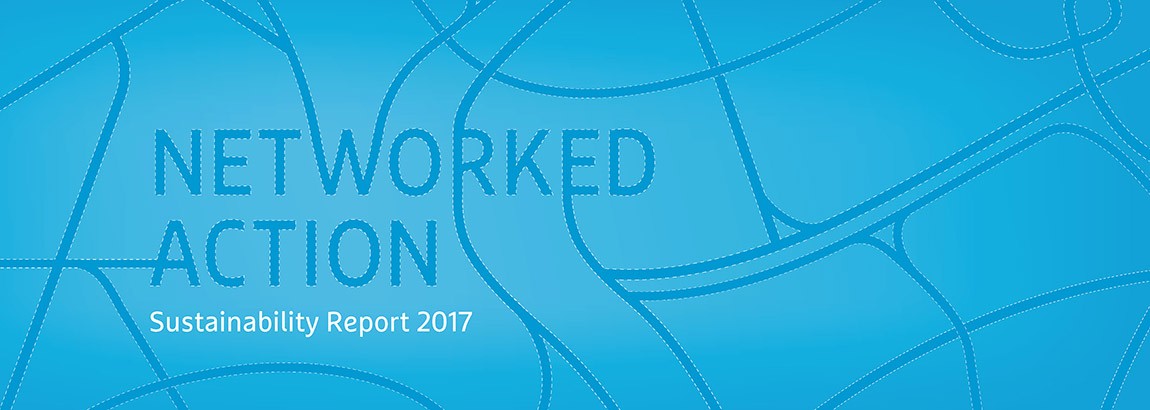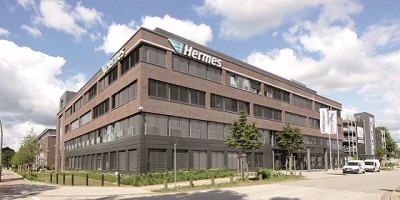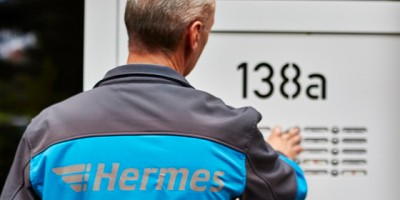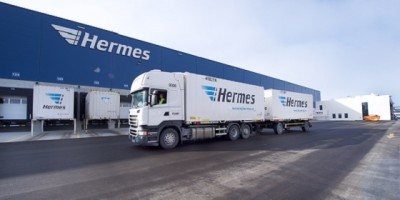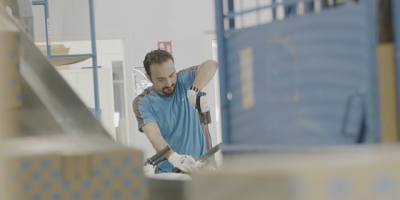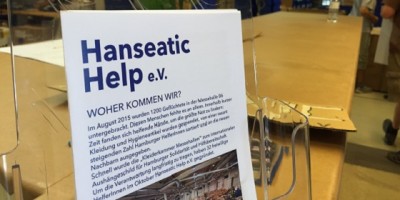Contractual partners and suppliers
Responsible action in distribution
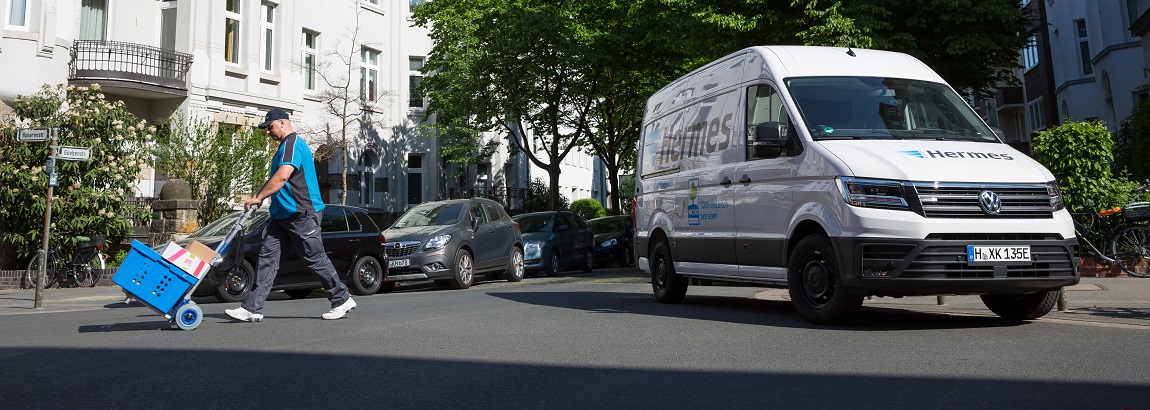
As one of the largest German logistics companies, we are not only economically successful, but also accept our social responsibility along the value chain in addition to our ecological responsibility. A special focus lies on distribution. This is where we see the greatest need for action with regard to social risk issues such as occupational safety, working hours and pay. Our commitment to sustainability therefore applies not only to our own employees, but also to employees at our contractual partners.
In distribution, we cooperate mainly with a large number of external contractual partners and suppliers, both in the final mileand on line haul. Our contractual partners are among our most important stakeholders.
Final mile
At Hermes, the final mile describes the stage at which parcels are delivered to the recipient. The goods are transferred from the logistics centre to a distribution centre and from there to the local courier base. From here, the Hermes couriers transport the goods to the recipient. The final mile is mainly undertaken by small and medium-sized, independent service partners throughout Germany.
Currently, around 250 Hermes courier bases in Germany are operated by general contractors. In addition, there are almost 100 contractual partners who do not operate their own sites, but deliver parcels from Hermes' own depots. Hermes transports more than 1 million parcels per day throughout Germany - the lion's share with the help of contractual partners.
Mutual trust and long-term partnerships are therefore particularly important to us and form the basis for fulfilling our high service standards. We regularly and continuously monitor compliance with social standards, thus securing our business relationships and creating transparency for our stakeholders. We continuously record the achievement of our final mile goals by comprehensively documenting the audit processes.
Line haul
Line haul corresponds to the transport route of a consignment between a client’s dispatch warehouse and the regional distribution centres from which a shipment is ultimately delivered (final mile). Here too, Hermes relies on external partners and responsible cooperation.
Dealing with the effects of our business activities
Compliance with social standards is an important and recurring issue in the parcel service industry.
The following potential social risk factors for the Hermes Group at distribution level were identified in the Materiality Assessment:
- Remuneration: As part of our collaboration with service partners on the final mile, the appropriate remuneration of their employees (compliance with statutory minimum wages, right to holidays, continued payment in the event of illness, etc.) is a central component of our cooperation.
- Working Time: Compliance with the daily and weekly legal working time regulations must be guaranteed.
- Safety at work: A safe working environment is a prerequisite for the protection of employees during work.
- Training: Staff training is very important for us in order to ensure service performance and ultimately customer satisfaction.
Auditing our service partners
The aim of service partner management is to ensure fair working conditions along our supply chain based on our Code of Conduct. We expect each cooperation partner to strictly adhere to our Code of Conduct as the basis of our business relations. On the final mile, compliance with the Code of Conduct is checked in regular audits, setting industry standards. In line haul, we have committed ourselves to complying with the FairTruck Code with the aim of improving working conditions for drivers and upgrading the profession.
